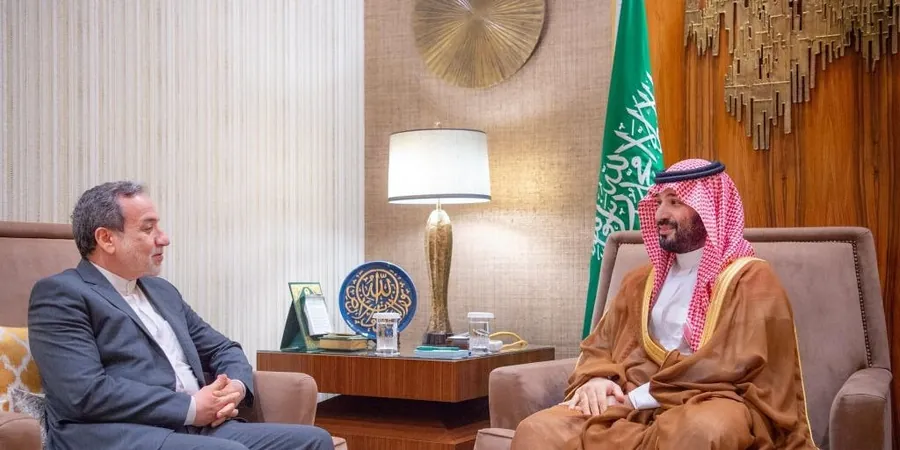
Tensions on the Rise: Iran's Bold Ultimatum to Saudi Arabia Could Shatter Truce
2024-10-11
Author: Ting
In a stunning move that has sent shockwaves across the Middle East, Iran has issued a stark warning to Saudi Arabia, promising to retaliate against Saudi oil facilities should they support an Israeli offensive. Iranian Foreign Affairs Minister Abbas Araghchi conveyed this threatening message during a recent diplomatic visit to Riyadh, as reported by multiple sources, including Reuters.
The precarious truce established earlier this year, brokered by China, between the long-time adversaries Iran and Saudi Arabia is now on the verge of collapse. This fragile peace agreement, seen as a Regional landmark in stabilizing relations, faces a severe threat if Gulf states permit Israel to utilize their airspace for military operations against Iran.
In a clear sign of escalating tensions, Araghchi conveyed Iran's expectation that Saudi Arabia and its allies must refrain from assisting Israel in any strikes against Iranian targets. He ominously warned that Iran could deploy Iranian-backed militia groups operating in Iraq and the Houthi fighters in Yemen against Saudi interests. This revelation was corroborated by Ali Shihabi, a Saudi analyst with close ties to the royal court, who remarked, “If the Gulf states open their airspace to Israel, that would be tantamount to a declaration of war.”
Further intensifying the situation, The Wall Street Journal has reported that Iran has warned through covert channels of potential retaliation not just against Saudi Arabia, but also against Jordan, the United Arab Emirates, Qatar, and other U.S. allies in the region, should their territories or airspace be utilized for attacks on Iran.
As the conflict escalates, Israel has been ramping up its military operations against Iranian-aligned Hezbollah forces in Lebanon. In a tit-for-tat response, Iran launched a missile attack on Israeli territory on October 1, prompting Israeli officials to consider potential military responses targeting Iran's nuclear facilities or oil production sites. Such actions could provoke Iranian strikes on Gulf states perceived as collaborators with Israel, thus dragging the region into deeper chaos.
This alarming turn of events has caused concern regarding oil prices, as any disruption to Saudi oil production could lead to a substantial price surge. The kingdom, recognized as the world's leading crude exporter, significantly influences global oil markets. Brent crude prices, which have already risen by 12% in the past month, currently hover around $79 a barrel, having experienced notable increases following geopolitical tensions.
Despite the violence erupting after the tragic October 7 terror attacks by the Iran-backed militant group Hamas, the established truce between Iran and Saudi Arabia has seemingly held so far. However, some analysts remain worried, suggesting that any significant military engagement could obliterate the diplomatic progress achieved through the recent détente.
The stakes are high in this ever-evolving geopolitical landscape. With both nations’ pathways intertwined by complexity and rivalry for decades, the possibility of rekindling hostilities could not only destabilize the Gulf region but could also reverberate throughout the global economy. As regional players weigh their next moves, the world watches closely, holding its breath for the unfolding narrative that could redefine Middle Eastern relations for years to come.



 Brasil (PT)
Brasil (PT)
 Canada (EN)
Canada (EN)
 Chile (ES)
Chile (ES)
 España (ES)
España (ES)
 France (FR)
France (FR)
 Hong Kong (EN)
Hong Kong (EN)
 Italia (IT)
Italia (IT)
 日本 (JA)
日本 (JA)
 Magyarország (HU)
Magyarország (HU)
 Norge (NO)
Norge (NO)
 Polska (PL)
Polska (PL)
 Schweiz (DE)
Schweiz (DE)
 Singapore (EN)
Singapore (EN)
 Sverige (SV)
Sverige (SV)
 Suomi (FI)
Suomi (FI)
 Türkiye (TR)
Türkiye (TR)